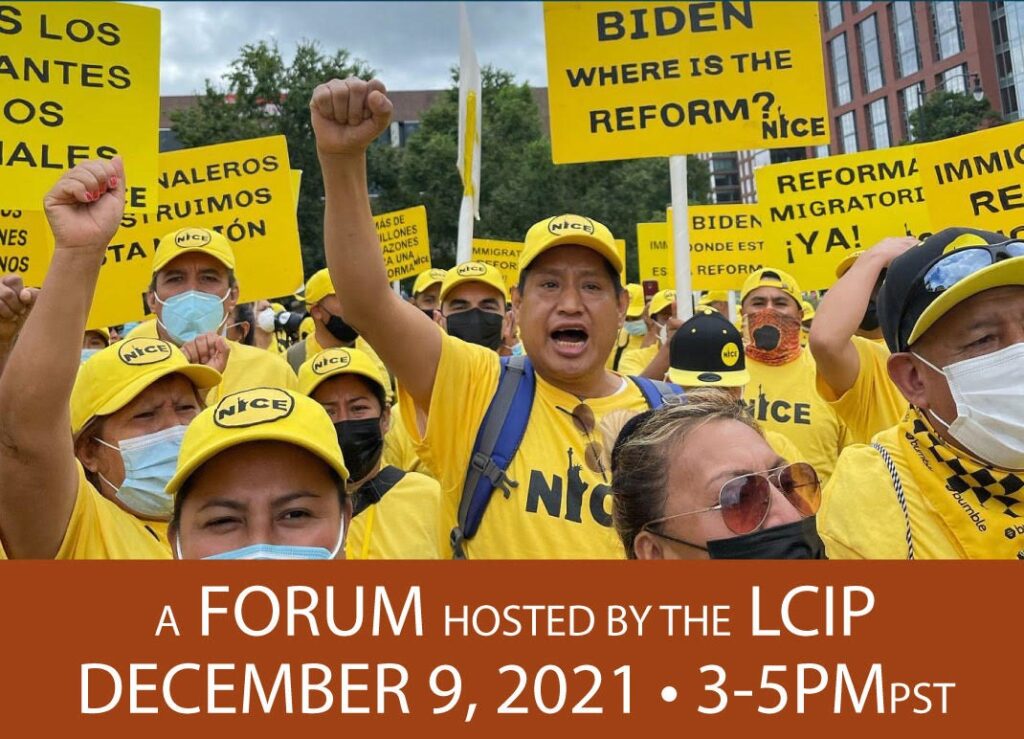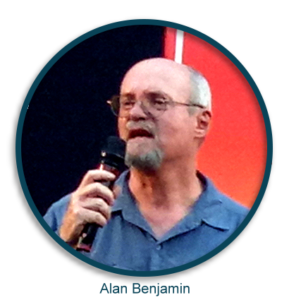Presentations to the December 9 LCIP Forum on Immigrant Rights and Independent Politics

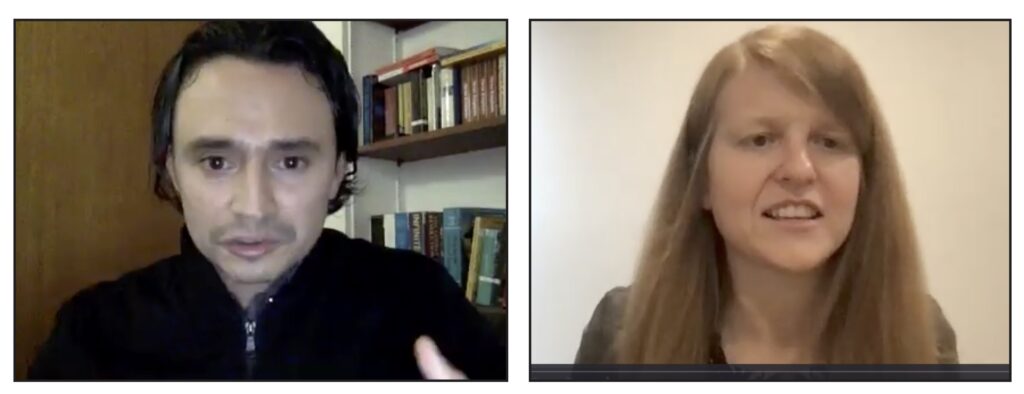
Presentation:
The following statements were presented on December 9 to an online national forum on Citizenship for All and the Fight for Independent Working-Class Politics that was attended by 63 unionists and community activists. The meeting was hosted by Labor and Community for an Independent Party (LCIP).
Marco Amaral (Independent candidate for California State Superintendent for Public Instruction)
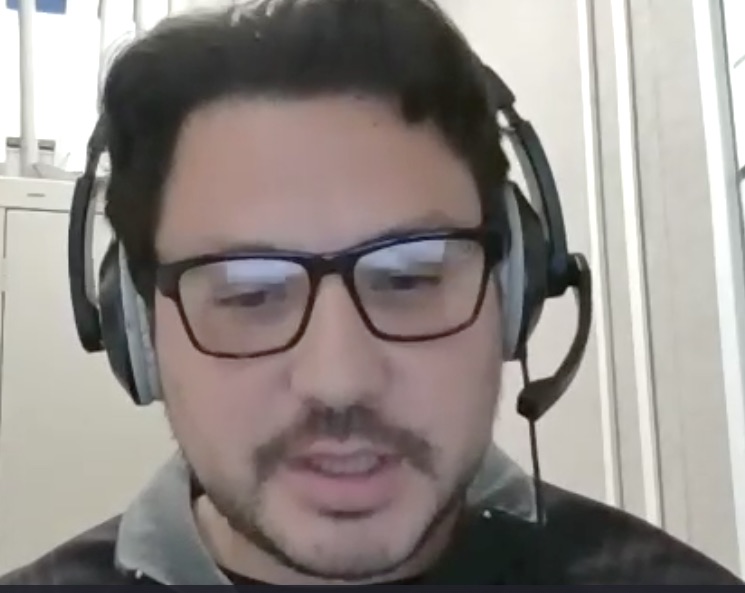
[Note: Marco Amaral was one of the first speakers at the forum. He was introduced as the first candidate supported by LCIP. His presentation below has been posted to the LCIP website: lcipcommittee.org. Also posted to the LCIP website are (1) LCIP’s statement in support of Amaral’s campaign for California State Superintendent for Public Instruction, and (2) Amaral’s letter to LCIP requesting endorsement for his campaign.]
Thank you to all the speakers before me. What powerful words. I am humbled to be in this space. Thank you to Labor and Community for an Independent Party (LCIP) for hosting this event. First and foremost, I want to recognize that I speak these words from the occupied Kumeyaay Nation, which was divided unjustly illegally, and inhumanely by a scar on the earth, which is our Southern border.[1]
My name is Marco Amaral. I have been a special-education teacher for six years. Before that I was a classified employee for special education. I’m also a PhD student in education. I’ve been an activist and organizer in the major movements of the past 15 years for a more liberated world, including the immigration rights’ movements and the movement in defense of public education.
I am the only independently elected leftist on the School Board in San Diego County and the first working teacher in California state history to run for state superintendent of public instruction.
Ours is the first campaign for state superintendent that is truly independent. I have never been registered with either neo-liberal party, Democratic or Republican. On the contrary, I have always stood in solidarity with the working class and the poor. I am humbled to be here today to learn from my fellow comrades and to add my own sweat and grind to this collective effort.
We need to make sure that ICE [Immigration and Customs Enforcement] and Border Patrol have no right to step foot into our public schools. Our families are being separated. We need to make sure that we keep our students’ families safe and united, because if we do not center our education struggle on these most basic human rights, little else matters. We also need more counselors and school psychologists in our schools.
A liberated public education system is centered on the political, social, and economic wellbeing of all our kids. Second comes whether they can solve a quadratic formula or write a five-paragraph essay. In fact, if students don’t have to worry about their families being separated, they will more likely do well in school, and they will be able to solve that quadratic formula and write that five-paragraph essay. It shouldn’t be a radical concept to think that our students should have the right to have their families united, that they should be able to come to school with that peace of mind.
I stand in solidarity with the call to break away, once and for all, from the Democratic Party, which as previous speakers have pointed, does as much harm to our communities as the Republican Party, especially in recent memory. That’s an objective fact.
I hope to contribute to an education system that seeks to abolish ICE, an education system that creates bridges across lands and deconstructs walls, an education system that truly becomes, as Paulo Freire stated in “Pedagogy of the Oppressed,” the practice of justice and liberation.
I am now eager to hear the thoughts and questions from the comrades and community members during the remaining 50 minutes of this meeting. Thank you, once again, to LCIP for hosting this event. Let’s get the discussion started.
Endnote
[1] The Kumeyaay are the indigenous people of present-day Southern California (San Diego and western Imperial counties) and Northern Baja California, Mexico.
* * * * *
David Van Deusen (President of the Vermont AFL-CIO)
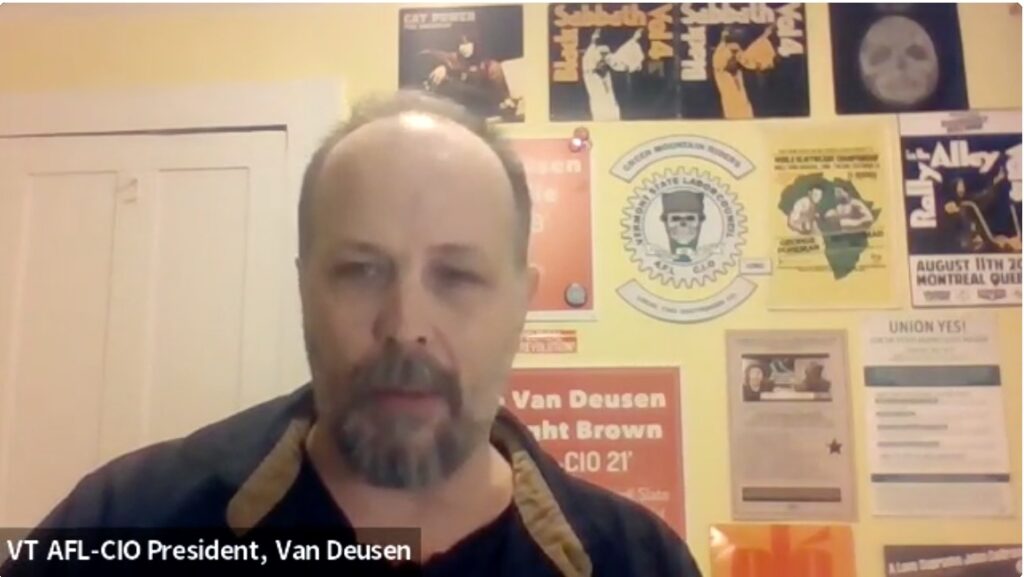
It is important that we recognize the very difficult situation that both documented workers and undocumented workers are facing in the United States. The Vermont AFL-CIO is proud to stand with Migrant Justice, which acts as a type of labor union in Vermont representing the undocumented farmworkers, most of whom labor on our dairy farms.
Migrant Justice’s efforts have resulted in concrete victories for migrant workers, largely Latino and Latina, on the farms. They have won dignified housing. They have won more safe and fair working conditions — all of this despite the fact that they do not have legal status within this country.
They’ve done this through their Milk with Dignity Campaign, and the Vermont AFL CIO has been standing with them every step of the way. This is what the labor movement should be doing in every corner of the country: Getting rid of the false delineation between those who are undocumented and those who are not.
It is only when the ruling class is able to keep us separated in our own silos that a tiny minority of the population can control the politics of our country. It is time for working people and our labor movement to shed all notions of xenophobia, racism, and discrimination — and recognize that we are, in fact, one working class. Then we, as the great majority, will have the power to implement foundational change.
But to attain that objective, the labor movement as a whole, including those who advocate for the undocumented, have to realize that we have put all our eggs in the basket of the Democratic Party — year in year out, decade upon decade, for many generations, and what have we gotten in return? Are we going to see immigration reform from this Congress led by the Democrats? No.
Anybody who thinks right now that the Democrats are going to do the right thing, you’re out of your mind. They’re not going to do the right thing. Is labor going to see the ProAct pass? Absolutely not. Are we going to see fundamental change, with our voting rights protected, in the Democratic-controlled Congress? No, we won’t.
There always will be an excuse saying, well, we’re two votes short – but you know what? We’re always going to be two votes short, because the corporations who are behind the Democratic Party will always find those two folks who will be the foil impeding any real foundational, progressive legislation passing through Congress.
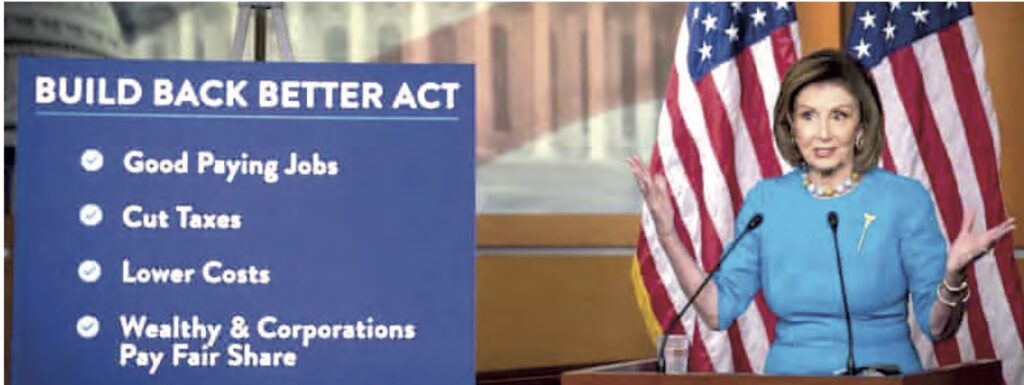
If we continue to put our faith in the Democratic Party – which takes every opportunity to betray us time and time again — then we become accomplices in that betrayal. But we are better than that. In Vermont, we said that we can do better than that.
We said to our politicians in the State House, who are overwhelmingly Democrats: No More! We told them our priorities and put them on notice that if they don’t move our priorities, we are not going to endorse them. So, what have we done? We’ve backed, with our votes, the democratic-socialist Vermont Progressive Party.
The Vermont Progressive Party is a true third party with seats in the State Senate and the State House. We have worked closely with them and endorsed them in the last three election cycles in the city of Burlington, our largest city, where we’ve won more seats on the City Council than any other party.
It’s a long road. The Vermont Progressive Party is still a minority party. But at the same time, we cannot look ahead at just one election cycle. We cannot look at two election cycles or three, or even five. We need to have a long view, and we need to understand that we are not going to build power by relying on cozy relationships with the Democratic Party.
We are not going to build power by putting our faith in lobbyists in Washington, DC or in the state capitals. And we are not necessarily going to build power when we back the right third party – though that will help us remove obstacles. Our real power is in our solidarity. Our real power is when we work together.
Our real power is in the streets, in the communities, and in the workplaces. Until we recognize that – until the national AFL CIO recognizes that– we will be stuck in this quandary, disappointed each and every time we’re asked to line up behind candidates who don’t really stand up with us.
We’ve made this shift here in Vermont. We can do this in other states.
I’m here to say that the Vermont AFL-CIO is happy to be partners with our friends from Migrant Justice. We are happy to stand shoulder to shoulder with groups like Black Perspective. We are happy to engage in the social fights that are going on right now, fights that impact the whole working class for the better.
We can’t do it just in Vermont. We need this to happen everywhere in the country. The chain of the oppression to which we have been subjected needs to be broken in many links. But it’s not enough for us just to believe this, we also have to take concrete steps to see it become a reality.
And what does that mean? It means that if you’re part of a community organization, if you’re a part of immigrants’ rights group, you need to reach out to other community groups. You need to build those relationships and that trust now.
And if you’re part of a union, you need to fight within your union to make it more democratic, to make it driven by social justice – and to make sure that labor stands with our allies, regardless of their immigration status.
So, thank you for having me today, and together let’s make that change.
* * * * * * * * *
David Van Deusen response to initial comments from forum participants:
Yes. We, the working-class majority, need our own party. I think that anybody who’s been paying attention to the Democrats would agree with that. It would be hard to argue against. But that’s a meaningless statement in and of itself.
Right now, there are probably two dozen socialist parties in the United States. For the most part, they are fractured — and a quarter of them have a dogmatic interpretation of where we need to go. That’s a far cry from a mass workers’ party of any kind.
Let’s also be clear about the AFL CIO, which is by far the largest labor federation in the country. Delegates at times may pass resolutions, as they did a couple of years ago, in support of the idea of a third party, a national labor-based party. But the national AFL-CIO leadership has put exactly zero effort into actually building it.
So, what we need to be talking about is the actual nuts and bolts of how from one state to another, we can build and then federate a real grassroots working-class party – a party that supports working people, including migrant workers. It’s much more complex than just saying we need a new party. The question is how do we achieve it? I don’t pretend to have those answers. But I would encourage folks to look at the history of the Vermont Progressive Party and how that was built over a couple of decades into a real non-marginalized political party.
* * * * *
Connie White (Continuations Committee, LCIP)

In our LCIP Statement of Purpose, one of our two points of unity is that we need to organize issue-based labor-community coalitions. These are coalitions that advocate for the building of an independent working-class party while also building mass movements around the burning issues facing labor and the oppressed communities on a local level.
These coalitions, organized in mass local assemblies, become the base of the Labor Party that we are seeking to build. In that manner, any candidate that we put forth, or endorse, becomes accountable to the rank and file. We are not just talking about building a mass-based, independent working-class party rooted in the unions and communities of the oppressed, we are beginning to deal with the nuts and bolts of building such a party, from the bottom up.
Speaking for myself, and not necessarily on behalf of the LCIP Continuations Committee, I would really love for your Vermont Progressive Party to join with us in terms of organizing in your area and continuing to do your organizing the way you do, but also building with us those labor-community coalitions on a local level that will become the base of a mass-based, multi-tendency Labor Party.
The second point of unity in our Statement of Purpose is our commitment to building caucuses within labor unions that will advocate for a clean break with the Democratic Party and promote the building of issue-based labor-community assemblies as building blocks of a Labor Party.
* * * * *
Millie Phillips (Continuations Committee, LCIP)
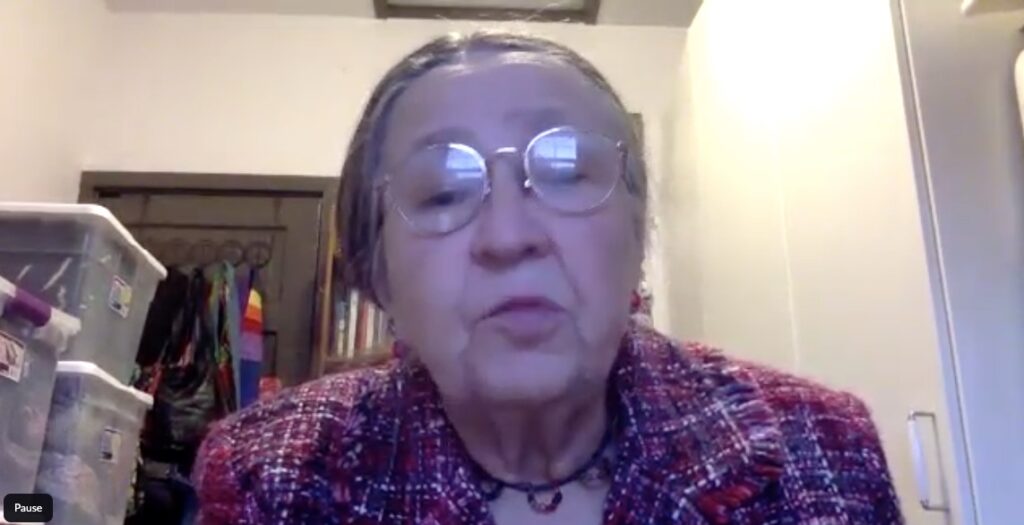
LCIP came out of the work of a lot of people who had been involved with the Labor Party in the 1990s. For example, I was the vice-chair of the Golden Gate chapter of the Labor Party during that period.
We learned some very painful lessons from that experience. One of those lessons was that trust has to be built between labor and other communities of the oppressed.
The labor movement itself is diverse. It contains every race, gender, nationality and immigration status. But if the labor movement isn’t in alliance with the movements of marginalized communities – in alliance with people who are struggling and who are not in unions, especially when unions are not showing solidarity with their struggles or not committed to organizing the unorganized, why would people support labor?
We saw in the Labor Party that not enough attention was paid to this issue.
We also learned to break with the sectarianism that has plagued all too many groups on the left, who don’t know how to speak to the U.S. working class or address working-class issues in a way that makes sense and sounds like normal conversation.
Our goal with LCIP is to lay the foundations of an independent working-class party, bringing labor and community together on the basis of local organizing around the country, building examples of success as we go, building trust.
This is not an instant process. We all know that. But it’s one that we cannot bypass. We have to develop the base for a party before we actually try to start one. That’s how I view our work in LCIP.
* * * * *
Alan Benjamin (Continuations Committee, LCIP)
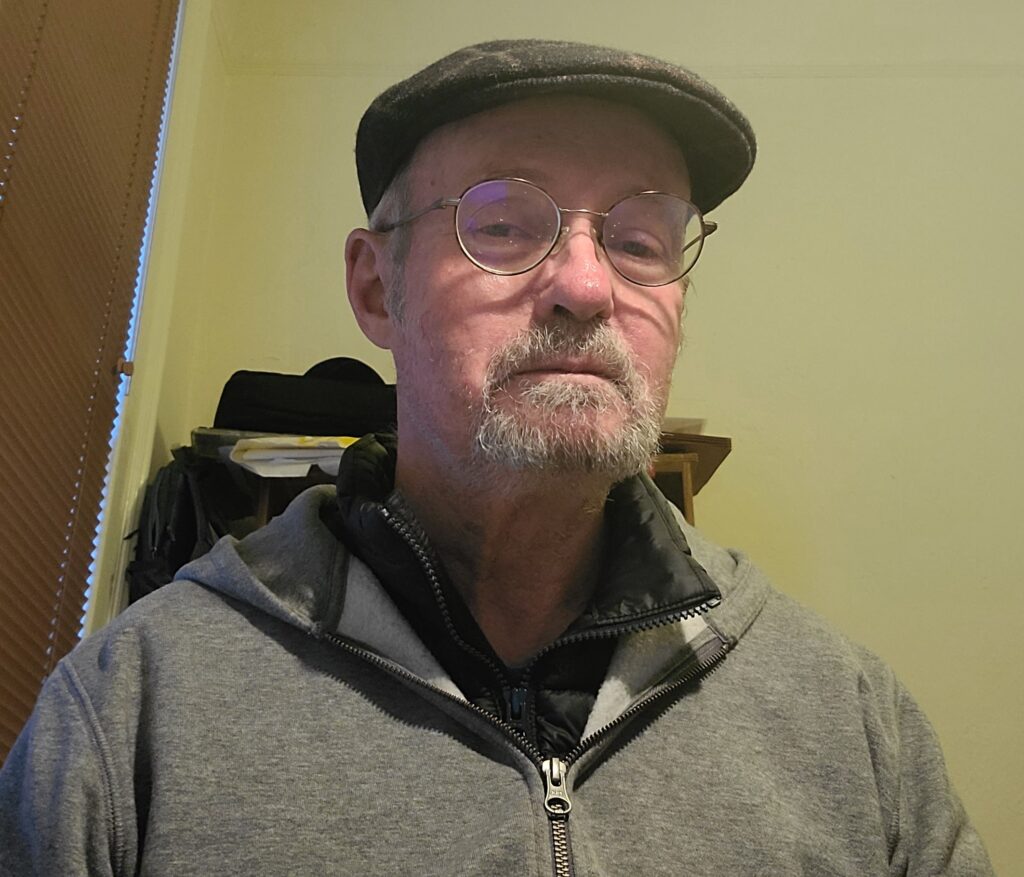
I concur fully with Brother Van Deusen: The Democrats will always find excuses to justify their refusal to uphold their campaign promises. Today it’s the two votes of Senators Manchin and Sinema. During the first two years of the Obama presidency, it was the Great Recession — a pathetic excuse, as Wall Street received $8 trillion in bailouts, while Main Street got screwed. Yes, Wall Street – which funds both corporate parties – will always find those two votes.
So if that’s the case, which it is, what are our responsibilities? Brother Van Deusen points out, correctly, that the AFL-CIO leadership has done absolutely nothing to implement the resolution of its 2017 national convention that called for taking the first steps toward building a union-based independent political party.
If the AFL-CIO leadership is compelled to present and adopt such a resolution, it’s because there is rising discontent with the Democratic Party within the house of labor, and more generally within the U.S. working class. All the polls prove this.
Brother Van Deusen is right when he says that we need a mass workers’ party to remove the obstacles in the path of the workers’ struggle for power. I believe that the AFL-CIO’s subordination to the Democratic Party is the main obstacle facing working people and the oppressed in this country.
So, shouldn’t we be waging a struggle within the AFL-CIO to demand that steps be taken to create a Labor Party advocacy structure, much like OCAW did in the early 1990s, when it did a survey of its members on this question, which prompted OCAW to create Labor Party Advocates? Couldn’t the Vermont AFL-CIO help get the ball rolling? The Vermont AFL-CIO has raised the need to form a progressive caucus within the AFL-CIO; couldn’t the proposal to start implementing its 2017 resolution be one of the caucus’ points of agreement?
Some have called this an exercise in futility. We don’t believe so. With our orientation of building labor-community assemblies, with the dual objectives of creating the building-blocks of a mass working-class party and building the movements around the pressing issues on a local level, we are convinced that more and more workers, and more and more unions, will jump on board.
It would be a huge step forward if the Vermont AFL-CIO were to join us in this effort.
